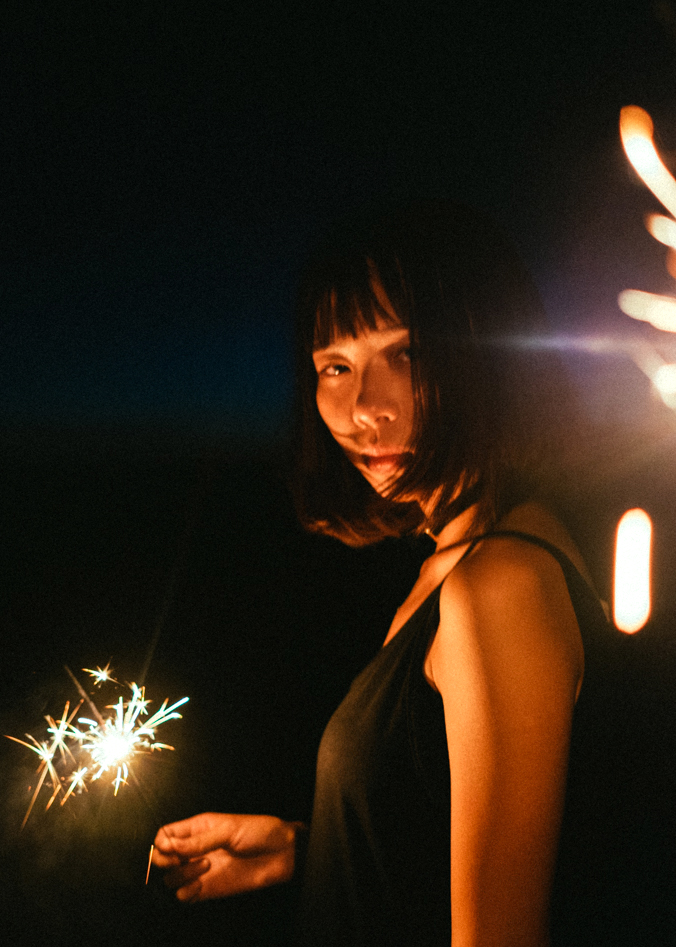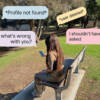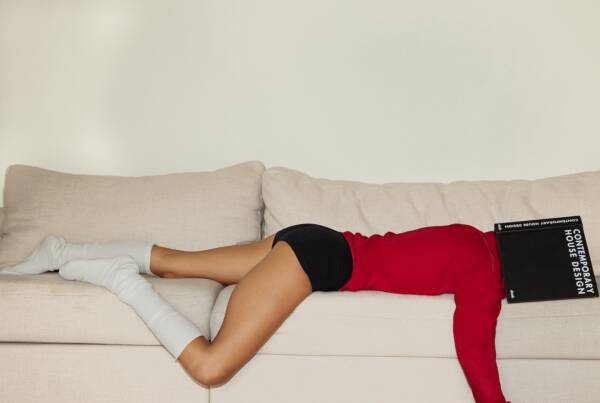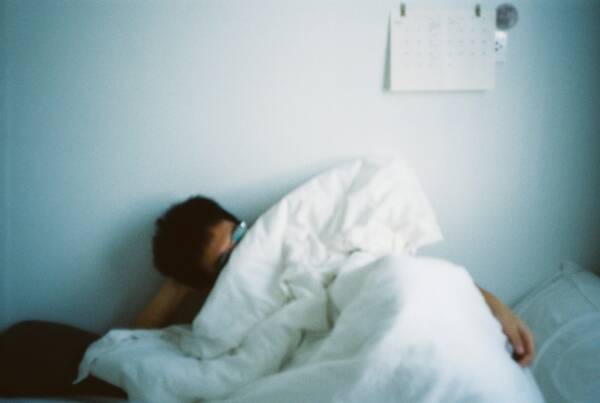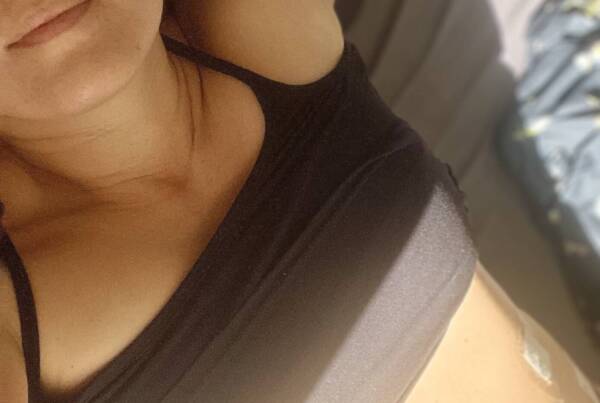Writing by Claire Wastell edited by Sandy Hsu // Photograph by 林偉偉 // Despite our ever evolving and accepting society, people with disabilities are still not completely tolerated in our day and age.
Writing by Claire Wastell edited by Sandy Hsu // Photograph by 林偉偉
Tired from my morning five hour shift at work, and still hungover from the previous night’s adventures, I walked up to the queue of people lining up at the gate hoping I wouldn’t have to wait long to get through. I had glitter on my cheeks, and my ticket ready in my hand. All my fatigue vanished when I heard the music and saw the strobing lights ahead; it was time to dance. As I approach the line to enter, I see that unlike most music festivals, there are not just two lines of entry but three: Ticket Holders, Ticket Holders needing bag checks and Disability Access. Since when did festival goers ever need disability access? I then remembered that this wasn’t just any normal festival, it was designed for people of all abilities — it was Ability Fest.
When I purchased my ticket to Ability Festival I knew that it was theoretically designed to support those with disabilities. However, I was unprepared for how different it would actually be to my usual festival experience. Walking through the Coburg Velodrome, I immediately noticed the considerable amount of people in wheelchairs or requiring assistance to help them walk. The set up saw wheelchair access in every location, seated elevated views of the stage and places on the side of the mosh to park wheelchairs safely. As my friends and I explored the area, we passed a guide dog stand, emergency service tents and even a Headspace ‘quiet area’. I had attended many festivals before, but this felt different. It’s usually all about dressing up (normally in as little clothing as possible), taking aesthetically pleasing Instagram pictures, getting blind drunk and probably not remembering the music. I usually feel judged or inadequate at a festival, always questioning to myself: is my outfit cool enough? Do I look like an idiot dancing? Will I get the right picture to upload? While I stood there observing the scene in front of me, I felt like none of that mattered. Come as you are. Appreciate the music. That’s all that matters.
My exhaustion subsided slightly when I realised that it was partly from lack of sleep, but also partly from the anxiety created by the usual festival expectation of looking and acting perfect. The realisation that I didn’t need to worry about that here hit me hard. I had never thought I would feel better at a festival catered for disabled people, but I did. I was happier. Suddenly it struck me that I have an inherit bias towards those with disabilities. Although knowing people with disabilities (including within my immediate family) I have never been able to be open minded about the issue. I never saw myself and those with physical and mental impairments as being equal in doing and participating in the same things. The social inequalities of those with disabilities dawned on me as I stood there soaking in the scene around me. I became all the more aware of my own actions and how I was not treating people in my own life with disabilities as equal to myself. The anger of injustice turned to shame. I was part of the problem.
In 2018 my sister had a cardiac arrest leaving her with a lifelong heart condition and a disability caused by a brain injury. I saw her in many of the people I passed that night. I had never considered the context of her being at a festival before. Festivals are loud, bright, exhausting and reserved only for a select bunch of ‘cool’ good looking people who have the stamina to dance all night and still look perfect at the end. This was certainly not my sister. Yet, here there was no exclusive entry or judgement and I realised what had been lost in the recent and growing trend of festivals. People have lost touch with the core value of what festivals are about — loving and appreciating music. That will never and should never be exclusive.
Coming to terms with my sister’s disability has been challenging for me and my family. When she got through rehab following the freak incident (brought on by an unknown genetic heart condition) and could walk and talk near normally again, we had some vain hope that life go back to normal. Although she looks like everyone else, her brain injury dictates that she will never be able to run, learn new tasks or live independently easily. She will forever be different. I would often find myself blaming her for this, and in a selfish way thinking that it was just because she wasn’t trying hard enough. To accept someone close to you is not capable of functioning normally without assistance, knowing that they will never quite fit in, is a very hard thing to do. I found myself comparing her to other people’s siblings, noticing every quirk and intricate detail that was different. I became fixated on our opposites to the point that I could not see any similarities between us. Divided already by trauma, I lost touch with her. We disconnected because I felt I had lost someone.
I pass a girl, just younger than myself, in a wheelchair, head slumped slightly to the right, eyes drifting in and out of awareness. I was immediately brought back to the weeks I had spent watching my sister in this same position. It was so hard to watch her so weak. I did not know how to respond to her lack of energy, dramatic mood changes and her slowness which made every day activities so much more difficult than before. I didn’t know what to do or how to help and so I pulled away. I looked at this girl and was overwhelmed by this feeling of guilt. I did not know how to handle her condition so I ran away. I abandoned her. I did not expect anything more from this girl than to be herself, whoever that may be. Why could I not do the same for my sister? I felt at one with her in that moment.
Despite our ever evolving and accepting society, people with disabilities are still not completely tolerated in our day and age. We fail to see those with disabilities as equals to us — either they are to be pitied or they are a burden. I feel society often leaves this group of people on ‘the outside ‘and not considered to be able to participate in societal activates like ‘normal’ people can. In 2008, the Australian Department of Social Services conducted a study titled ‘Shut Out’. The community were asked to respond to a series of questions about their experience of disability to determine the success of the National Disability Strategy. The findings found that the largest amount of submissions (56%) focused and commented on the issue of social exclusion and negative attitudes in society. The study recognised that “People with disabilities may be present in our community, but too few are actually part of it… Where once they were physically segregated, many Australians with disabilities now find themselves socially, culturally and politically isolated.” (*Note: This should have footnoting) This seems to be larger than a government issue now. In order to make change it requires a shift in our society’s mindset. As a young person, I hadn’t really thought that deeply about this issue. My personal experience and being at this festival really kicked me in the guts, as I realised that I was part of the society that needs to change. From treating a girl at school differently because her body didn’t know how to work quite right to keep up physically (*Note: I have edited this to make it smoother but still an odd sentence), or staying away from that kid at high school with the learning difficulties, to staring at the boy in my University lecture trying to figure out what is not ‘quite right’, I realised my behaviour encouraged intolerance. How could I expect society to treat my sister normally if I didn’t do the same?
As the sun set on the Coburg Velodrome, I looked up to see the light catching the floating dust and creating a magnificent display of colours. I danced into the night, not caring about a thing. Not worrying about judgement — and not judging others. Ability Festival started in 2018 by The Dylan Alcott Foundation, with its “aim to use music as a platform to normalise disability by encouraging everyone – regardless of age, gender, disability or race – to come together in celebration of live music.” I truly believe it is one of the best ways forward towards social inclusion. All the artists, helpers and workers volunteer their time and 100% percent of the proceeds go towards helping young Australians with disabilities. I could not have imagined how this event would have the power to change me. I have come to resent the main stream festival scene and its exclusivity. I do not want to be part of it anymore. I want to live in a world where we are not afraid of difference or disability. Where my sister is accepted amongst everyone. Where we can dance together. A world where she is seen as equal. But most importantly that I see her as an equal.
I close my eyes and listen. I hear the music inside my chest. My heart beats. All our hearts beat. And they beat in time to the music as one

